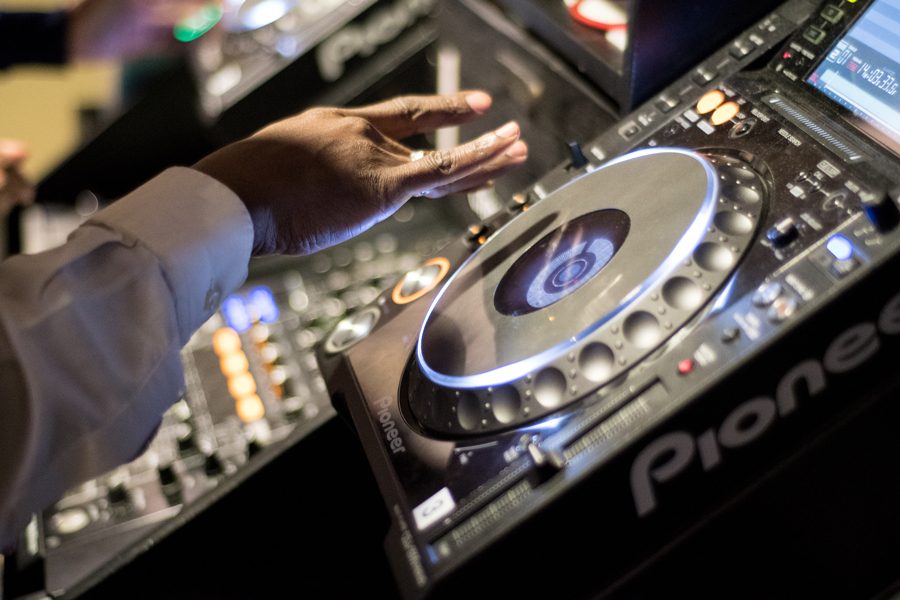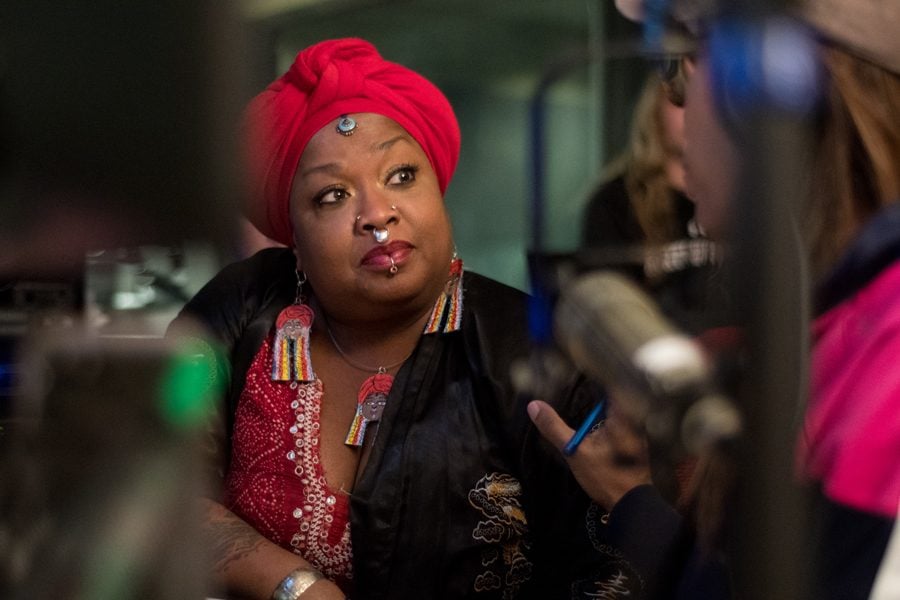WNUR’s show ‘Vintage House’ celebrates house music
Colin Boyle/Daily Senior Staffer
Lady Laronda Maestro participates in a live broadcast of WNUR’s “Vintage House.”
January 31, 2018
A&E
As a 17-year-old, Lori Branch — struggling with her bisexuality — snuck into The Warehouse club. She described the experience as “magical” and said the house music club provided a space where she could be herself and fit in.
“It was one of these things that I had never experienced,” Branch said. “The sound system, the type of music, the energy and the very unbiased and non-judgmental environment stuck with me.”
Branch is now co-host and co-curator of “Vintage House,” a show on Northwestern’s radio station WNUR that invites influential figures from the house music scene on-air to tell their stories. The show airs Wednesdays at 10 p.m. as a part of Streetbeat, WNUR’s programming for underground music.
House music is a form of dance music that originated in Chicago in the late 1970s. Although the name’s origins are debated, Branch said one theory says it stems from the aforementioned Warehouse club.
Streetbeat producer and McCormick junior John Williams said Streetbeat’s mission is not only to celebrate this sub-genre of dance music, but to highlight and feature artists that “historically have been marginalized” in the house music scene.

“Vintage House” is part of WNUR’s “Streetbeat” program that invites influential figures from the house music scene on-air to tell their stories.
The show presents the stories of individuals involved in all facets of house music, including producers, promoters, club owners and DJs, said Lauren Lowery (McCormick ’89). Lowery, founder and co-host of “Vintage House,” said she hopes to portray an accurate documentation of the music’s history by giving appropriate recognition to its key players.
“What happens with history generally … is that if it’s not recorded right or if people in power get to create the narrative, then of course the narrative goes to somebody else,” Lowery said.
Branch said existing documentaries about house music are often limited because they always interview and feature the same people. She cited BBC as an example, saying they recently came to Chicago to interview people in the house music scene, but perpetuated the issue by only including the “usual suspects.”
“We think (‘Vintage House’) is a way to get alternative stories, stories that really demonstrate the nuance, the background, the class structure, the academic part,” Branch said. “There’s lots of ways to look at it and we think that’s important, because this was something that was a movement and that has worldwide influence and we want to get it right.”
As it moves into Black History Month, “Vintage House” will highlight the diversity in house music by bringing prominent black Chicago house music performers to discuss their careers, share memories and techniques and reveal “behind-the-scenes magic” about the creation of iconic songs, Lowery said.
The show will discuss the influence of Chicago’s first black mayor Harold Washington, who created a positive political climate for black Americans in the ’70s that likely influenced house music’s positive tone, Lowery surmised.
“I definitely want the listeners (and) our artists to recognize how powerful black music is,” Lowery said. “(There are) a lot of the positive messages in the music: the message of love and unification for blacks, for gays, for people who were ostracized — that music form really embraced everybody.”
Branch emphasized the importance of events and festivals in Chicago that draw people together through music.
“There is a type of alchemy that happens when you bring people together whose sole purpose is to be present with the music and with each other,” Branch said. “I think part of our mission is to say ‘Let’s spread love through music, and let’s show activism and advocacy through music.'”
Email: carmenfernandez2021@u.northwestern.edu
Twitter: @CarmenMFern



